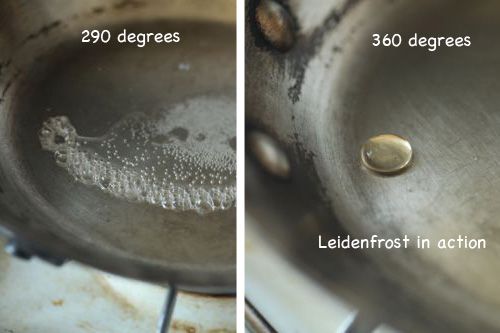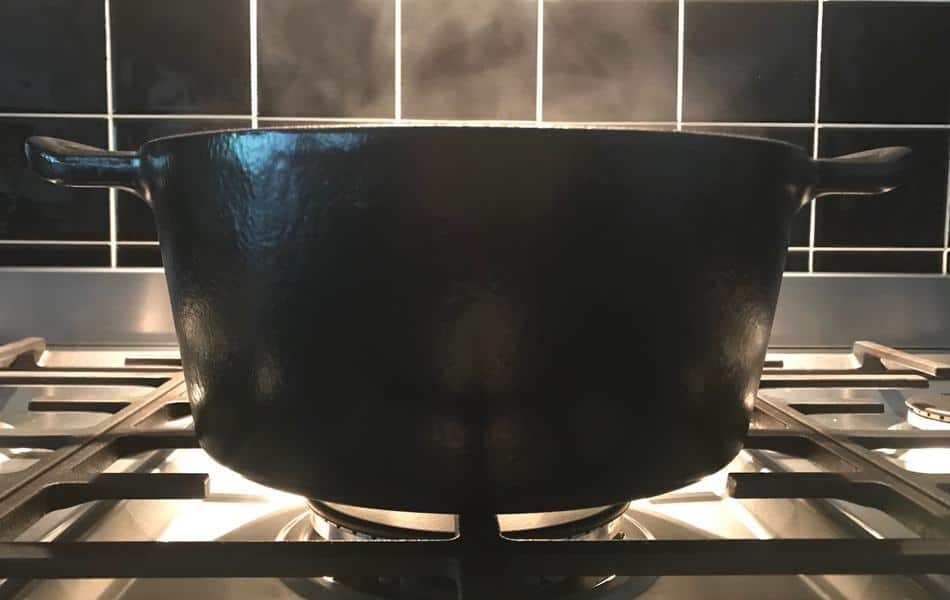Why does water take so long to boil on a gas stove?
As anyone who has ever boiled water on a gas stove knows, it can take an excruciatingly long time for the water to actually come to a boil. This article seeks to explore why this is the case and suggest potential solutions for those frustrated by their slow-boiling stove.
Understanding Gas Stoves and Burners
First, it’s essential to have a basic understanding of how gas stoves work. A gas stove relies on combustion – or burning – in order to generate heat. The burners distribute this heat evenly across the base of whatever pot or pan is resting on top.
There are two primary types of burner systems used in gas stoves: open and closed. An open burner operates similarly to a traditional campfire or woodstove, with flames that lick around the bottom of the pot or pan. A closed burner, on the other hand, funnels the heat up through small holes located at regular intervals across the burner surface.
The type of burner your gas stove uses can have a significant impact on boiling time.
Boiling Water
Before delving into why water boils slowly on a gas stove, let’s review some basics about boiling water itself. At what temperature does water boil? The answer varies based on air pressure, but at sea level, water will reach boiling point at 100°C (212°F). Boiling occurs when sufficient energy is transferred into a liquid to cause its molecules to change from their liquid state and turn into vapor.
So how long should it take for water poured into a pot and placed atop your gas stove burners’ flame to come up to boiling point? The answer depends on numerous factors.
Heat Transfer in Gas Stoves
Heat transfer refers broadly to any method of transferring thermal energy from one object (in this case, the flames beneath your pot) to another (the pot itself and the liquid contents inside it). There are three different types of heat transfer that affect gas stove boiling time: radiation, conduction, and convection.
Radiation is the movement of energy from one object to another without having any actual physical contact between them. When you turn your burner on, it emits infrared radiation waves that get absorbed by your pot, which converts into heat and heats up the water.
Conduction happens through direct contact between two objects at different temperatures; because metal is a good conductor of heat, pots made with highly conductive materials will boil water faster than those constructed with ones that don’t.
Finally, both open and closed burner stoves produce hot-air convection currents that circulate around and beneath your pot as it heats. Open burners have a third form of heat transfer in which the flames double as a miniature convection oven underneath your pot.
Flame Size and Intensity
Your flame’s size plays a vital role in how quickly water boils on gas stoves. A larger flame means more infrared radiation reaching your pot at once, leading to faster water boiling times. Compare this to smaller flames producing slower heating time.
Some individuals think they can accelerate boiling speed by cranking their burners’ flames to their highest setting – but doing so can often create new problems due to uneven heating or even overheating the pot’s sides before fully boiling its contents.
Potential Issues that Affect Boiling Time
There are numerous mistakes cooks make when using a gas stove to boil water – some might remain blissfully unaware their mistakes are preventing their water from coming up to boiling point faster than expected. Cooking habits like selecting pots or pans not suitable for use on stovetops could prolong the process. You should utilize a pot whose bottom matches each burner’s diameter perfectly.
Similarly, adding salt can raise the boiling point of water slightly (to roughly 100.5°C or 213°F for every 58 grams of salt per liter of water), resulting in even longer boil times. Additionally, starting with cold tap water will take longer than using already boiled water from the kettle.
Techniques for Boiling Water Quickly on a Gas Stove
Several techniques can ensure you’ll have boiling water promptly when cooking on your gas stove:
- Use smaller pots, and boil only as much water as you need to save time.
- Starting with hot tap water shortens the boiling time by reducing the state’s energy content before putting it atop your burner.
- Opt for a pot made of thin material that transmits heat faster to achieve faster heat conduction.
- Salt can impact boiling temperatures, adding it wisely may help accelerate the boiling process; make sure not to overdo it.
- Finally, be sure to keep your lid securely on top of the pot while heating – doing so retains more heat inside and aids in speeding up your boiling times.
Conclusion
So why does it take so long for water to boil on a gas stove? Ultimately, many factors contribute to slow-boiling times ranging from the size of flame you’re using down to the pot’s dimensions. Fortunately, there are numerous fixes and hacks available (like covering with a lid) that we hope will help those struggling cookers reduce their frustrations at home.
Q&A
- Q: What is the main reason for water taking longer to boil on a gas stove compared to an electric stove? A: Gas stoves release heat through flames that are located at the bottom of the pot, which may not immediately reach water molecules. On the other hand, electric stoves use heating coils that are in direct contact with pots and can transfer heat more efficiently.
- Q: Is there anything that can be done to speed up the boiling process on a gas stove? A: Yes, one simple solution is to place a lid on top of the pot, which helps to trap heat and create an insulating effect. This allows water to boil faster as it reaches higher temperatures while using less energy.
- Q: Can having a larger pot cause water to boil slower on a gas stove? A: Yes, using a larger pot without increasing the amount of water being boiled will result in slower boiling times as more heat is required to bring all of the water to boiling point.
- Q: How does altitude affect boiling time on a gas stove? A: At higher altitudes, atmospheric pressure decreases, which causes water’s boiling point temperature to drop as well. Therefore, this results in longer boiling times as heat needs to be transferred at lower temperatures in order for water to reach its desired boiling point.



